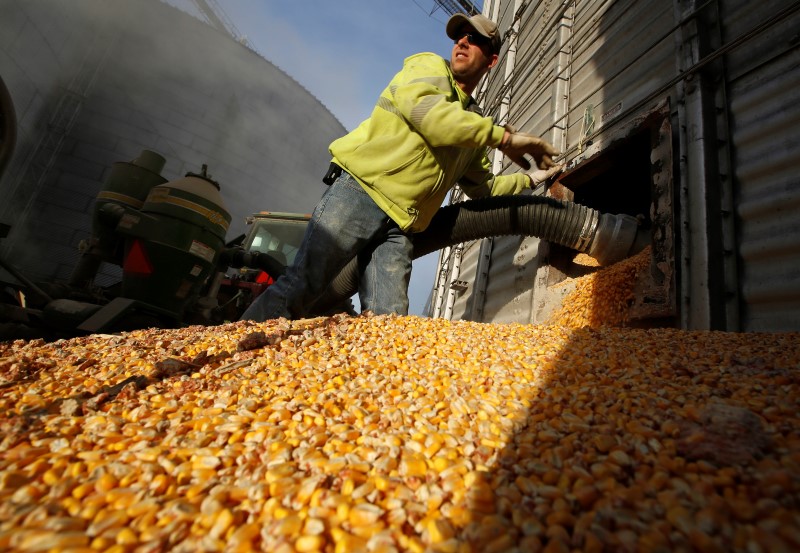(Bloomberg) -- Shares in meat companies like Tyson Foods Inc (NYSE:TSN). and Pilgrim’s Pride Corp. have been rallying on expectations of a global protein shortage due to a hog disease in China. Now a spike in corn and soybean prices is fueling the biggest selloff of the year.
The rally in crop prices -- as wet weather keeps U.S. farmers from planting -- signals higher feed prices for the animals that the meat companies raise.
Top U.S. meat producer Tyson dropped as much as 5% on Wednesday, the most since November. Chicken producer Pilgrim’s sank as much as 7%, the most since December. Brazilian giants JBS SA and BRF SA led declines in the benchmark Ibovespa equity index.
The selloff may present buying opportunities, said Rebecca Scheuneman, an analyst with Morningstar Investment Service. Crop price gains “will not overcome the margin improvement we expect to see in protein businesses, because pricing will be so much better with the massive protein shortage” coming due to African swine fever in China, she said.
Companies with significant U.S. production such as JBS, Pilgrim’s and Marfrig Global Foods SA are most impacted in any scenario of tighter feed supplies, according to a report by BTG Pactual analysts led by Thiago Duarte.
“We still think the African swine fever impacts may offset all that,” the BTG analysts said.
To be sure, meat companies are still among the best-performing stocks this year. JBS is up 84%, Pilgrim’s Pride has climbed 63% and Tyson has gained 44%. China, the biggest hog producer and consumer, is projected to lose 10% of its pork production this year due to the disease, according to the U.S. Department of Agriculture. The nation’s imports are forecast record high in 2019.
That could result in an unprecedented shortfall of pork that will lift global protein prices. Chicken producers are in particular expected to benefit, as a cheaper substitute for pork. China’s beef imports are already touching new records. The disease is spreading to other Asian countries, like Vietnam.
The impact of relentless rains in the U.S. Midwest is even rippling through to Chinese futures markets. Vegetable meals and oils surged Wednesday, and trading volumes rose over anxieties about tightening feed supplies.
The U.S. feeder cattle market is spooked by the looming corn crisis, too. August futures are on track to drop for a second straight session and touched the lowest ever for the contract.
“Protein stocks are a gut trade during the planting season, and more often than not, it’s a risk-off environment for buyers of feed," said Jeremy Scott, a restaurant and proteins analyst at Mizuho Securities.
